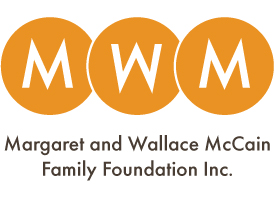
Stephen McNeil and Scott McCain, November 2023
Over 3,000 children are waiting for child care in New Brunswick. This matters. As children wait for child care their early learning is stifled, their parents are unable to work, and the economy foregoes needed skills. We could eliminate that deficit fast and add another 4,000 spaces to serve the province’s entire preschool population.
The solution to our child care shortage lies in our schools. Using the facilities and know-how of public education, Nova Scotia was able to offer a quality early education program to all its 8,200 four-year-old children within four years. No child care expansion has increased capacity that efficiently.
Our neighbour’s accomplishment doesn’t detract from the progress New Brunswick has made through the Canada-Wide Early Learning and Child Care agreements it has with the federal government. More spaces have been added and a hefty, and a much deserved wage increase has reduced the flight of child care staff.
Yet the struggle continues to bring child care to rural, Francophone, and vulnerable communities. Once established, keeping these programs viable is an ongoing trial. Here is where the assets readily available in our education system can be used. Schools are already in every community. They often have space that can easily be converted for younger children. In areas with small populations, four-year-olds can join Kindergarten classes, and as a bonus, their presence may prevent a small school from closing.
Universal prekindergarten particularly benefits those who have been underserved by licensed child care. It is accessible through schools, cost is not a barrier --parent fees are not charged, and unlike child care, attendance is not dependent on whether a parent is working. For employed parents, their schedules can be accommodated through afterschool programs.
If the province’s 7,400 four-year-olds had their early learning needs met in schools, the spaces they now occupy in child care would be freed up for younger children. Child care providers could then focus on addressing the scarcity of places for infants and toddlers, and children with special needs.
Prekindergarten delivered through public education would also ensure children’s learning is assisted by educators with expertise in child development. New Brunswick could use a hybrid approach. Depending on the location, classes could be led by early childhood educators or primary school teachers with early childhood training.
Let’s be clear, we are not advocating early schooling for very young kids. The prekindergarten curriculum is designed for the ways that young children best learn and develop. If experiences from other jurisdictions with universal preK translate to New Brunswick, we should even see early education’s experiential, play based approach influence teaching styles in kindergarten and the primary grades.
Canadian and international research finds a strong correlation between high-quality early childhood programming and early learning offered in schools. The behavioural and academic benefits extend throughout formal schooling, and manifest in better social and economic outcomes as adults.
The Programme for International Student Assessment conducted by the Organisation for Economic Cooperation and Development, finds a connection between the number of years secondary students spend in preschool, and their ability to apply their reading, mathematics and science knowledge and skills to meet real-life challenges. These are the labour market talents New Brunswick needs from its graduates to seize on the economic opportunities available to us. Imagine the impact on our collective futures if every young New Brunswicker had that chance!
Stephen McNeil is a former Premier of Nova Scotia
Scott McCain is the Chair of the Margaret and Wallace McCain Family Foundation
